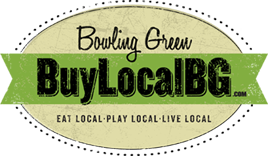Washington doesn’t knock when it shows up in our town. It doesn’t wait to be invited in. It shows up in the price of eggs, the wait time at the emergency room, and the letter your kid brings home about reduced school programs. That’s how the Big Beautiful Bill will land in Bowling Green, not with headlines, but with ripples. And those ripples turn into waves.
I like to start positive, but to define the battle, we must rip the band-aid off and show what our Congressmen in DC overwhelmingly voted for (Rand Paul opposed it and and Mitch McConnell voted for it, and Brett Guthrie voted with Senator McConnell to pass the bill and was a key figure in President Trump’s signature legislation).
Here are five ways this bill will reshape our community in the next decade:
1. The Disappearing Safety Net
The cuts to Medicaid, mental health funding, and SNAP benefits won’t announce themselves. They will show up as the grandmother on Smallhouse Road, choosing between groceries and her insulin. They will show up in the rising number of police calls that are, at heart, untreated mental health emergencies. Nonprofits like HOTEL INC and LifeSkills will try to fill the gaps, but without support, gaps become chasms. It also will be reflected (as it was just done for us) with a 28% increase in your monthly insurance bill.
2. The Slow Erosion of Schools
Federal cuts to education and shifts in enrollment will force local schools to tighten their belts. That doesn’t mean just fewer pencils. It means fewer bilingual aides. It means no summer programming. It means one guidance counselor for hundreds of students. In a city where many families are building new lives after fleeing war and hardship, these cuts hit harder than they would in a place with more margin. It also means WKU will have to reduce their international student enrollment like many of the universities have started to do nationally. These students are roughly 1,500 students who pay out-of-state tuition and into our economy.
3. Hospitals Will Become Costlier, and Worse
The Medical Center and its satellite clinics already carry much of the load for uninsured care in the region. With more people pushed off Medicaid or unable to access preventative services, care will shift to emergency rooms. And emergency rooms aren’t cheap. That cost doesn’t vanish. It gets passed to those with insurance, or absorbed through higher property taxes and private fundraising. In the long run, we all pay more for worse care. Also, much of the mental health care will fall to the overworked schools and to our police departments to deal with when we erode mental health care for the most vulnerable.
4. The Working Poor Will Have Less, and Be Blamed More
Work requirements for aid programs often punish those in the most precarious jobs; part-time retail workers, gig drivers, caregivers. They’re working. But they’re also parenting. Or they don’t have a car. Or they got sick. When those barriers kick in, families lose assistance. And in the court of public opinion, they lose sympathy, too. It becomes easy to say they didn’t try hard enough. But if you live in Bowling Green, you know that most people are trying as hard as they can.
5. The Rising Cost of “We”
As federal support recedes, the costs are redistributed. Not eliminated. They show up in church donation drives. In overworked school nurses. In neighbors starting GoFundMes for surgery or rent. The bill may feel distant, but it will require something close from you: your wallet, your patience, and your willingness to hold up the corners of the community when the center starts to give.
But Some Will Benefit: Five Local Upsides
Not every part of this bill lands like a hammer. Some of it will be welcomed by those who stand to gain.
1. Higher-Income Families Get a Tax Cut
For families earning $150,000 and above, the tax savings may amount to several hundred or even thousands per year. That means more disposable income, investments, or tuition savings. It may help local consumer spending.
2. Certain Business Owners May See a Windfall
Businesses that do not rely on EBT or Medicaid customers may benefit from lower regulation and tax burdens. Those in finance, real estate, and professional services may see growth.
3. Private Schools and Charters Could Expand
As public school funding becomes more limited, the space for private institutions to grow will increase. Some local families may welcome this shift if they already planned to opt out of the public system.
4. Local Control Will Increase and Growth of ICE Budget for Those Who Oppose Current Immigration Status
Some leaders will welcome the rollback of federal oversight. In theory, it gives local governments and state agencies more flexibility to design systems. Whether that flexibility is funded or effective is another matter. Also, ICE’s current annual budget is around $10 billion. The Big Beautiful Bill nearly tripled that to between $27 and $30 billion per year, more than the entire annual military budgets of countries like Mexico, Argentina, or South Africa. That makes ICE, a domestic immigration agency, one of the most heavily funded security forces in the world.
5. A Culture of Independence May Grow
For those who believe government assistance is a moral hazard, this bill affirms a worldview. It may inspire new private sector or faith-based efforts to fill gaps, potentially building tight-knit local support systems.
The Big Beautiful Bill won’t arrive with sirens. But you’ll see it. In the empty chairs at the health clinic. In the school programs that quietly vanish. In the neighbors you don’t see at the grocery store anymore. In the rising pressure for churches and local charities to do more with less. The question isn’t whether it will change Bowling Green. The question is: how will we respond, and who do we choose to be?

